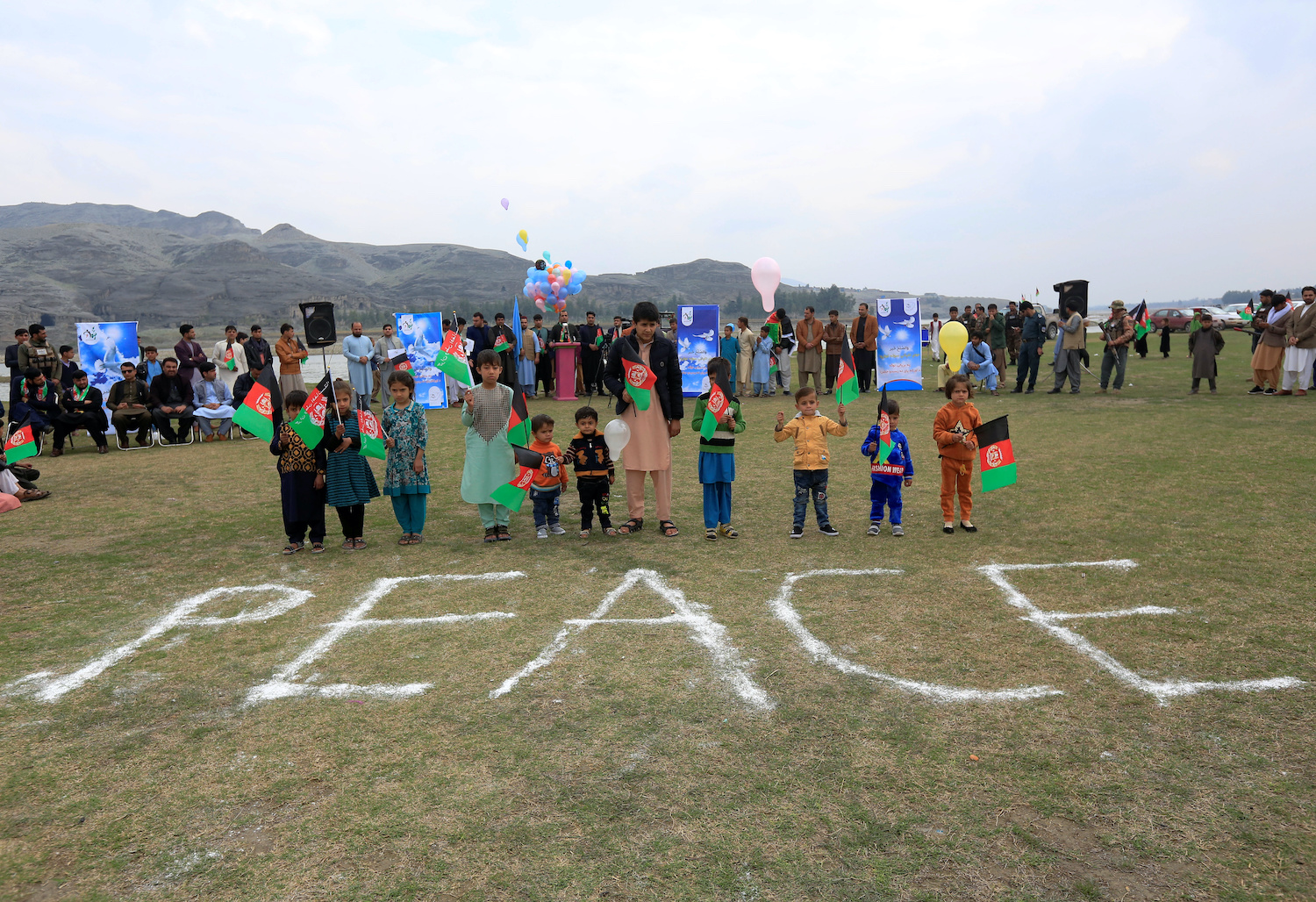
DOHA: The United States signed a landmark deal with the Taliban on Saturday, laying out a timetable for a full troop withdrawal from Afghanistan within 14 months as the country seeks an exit from its longest-ever war.
The agreement is expected to lead to a dialogue between the Taliban and the Kabul government that, if successful, could ultimately see an end to the grinding 18-year conflict.
Taliban fighter-turned-dealmaker Mullah Baradar signed the accord alongside Washington’s chief negotiator Zalmay Khalilzad, at a gilded desk in a conference room in a luxury hotel in Doha, the capital of Qatar.
The pair then shook hands, as people in the room shouted “Allahu Akbar” (God is greatest).
US Secretary of State Mike Pompeo looked on as the two signed the deal, after urging the insurgents to “keep your promises to cut ties with Al-Qaeda”.
The US embassy in Kabul hailed a “monumental day for Afghanistan”.
On the eve of the signing, President Donald Trump urged the Afghan people to embrace the chance for a new future.
“If the Taliban and the government of Afghanistan live up to these commitments, we will have a powerful path forward to end the war in Afghanistan and bring our troops home,” he said.
But the position of the Afghan government, which has been excluded from direct US-Taliban talks, remains unclear and the country is gripped by a fresh political crisis amid contested election results.
The Doha accord was drafted over a tempestuous year of dialogue marked by the abrupt cancellation of the effort by Trump in September.
The signing comes after a week-long, partial truce that has mostly held across Afghanistan, aimed at building confidence between the warring parties and showing the Taliban can control their forces.
The US and its allies will withdraw all their forces from Afghanistan within 14 months if the Taliban abide by the terms of the accord.
After an initial reduction of troops to 8,600 within 135 days of Saturday’s signing, the US and its partners “will complete withdrawal of all remaining forces from Afghanistan” within 14 months.
Nato Secretary General Jens Stoltenberg heralded the agreement as a “first step to lasting peace”.
“The way to peace is long and hard. We have to be prepared for setbacks, spoilers, there is no easy way to peace but this is an important first step,” the Norwegian former prime minister told reporters in Kabul.
Since the US-led invasion that ousted the Taliban after the Sept 11, 2001 attacks, America has spent more than $1 trillion in fighting and rebuilding in Afghanistan.
About 2,400 US soldiers have been killed, along with tens of thousands of Afghan troops, Taliban fighters and Afghan civilians.
The insurgents said they had halted all hostilities on Saturday in honour of the agreement.
“Since the deal is being signed today, and our people are happy and celebrating it, we have halted all our military operations across the country,” Taliban spokesman Zabihullah Mujahid told AFP.
Any insurgent pledge to guarantee Afghanistan is never again used by jihadist movements such as Al-Qaeda and the Islamic State group to plot attacks abroad will be key to the deal’s viability.
The Taliban’s sheltering of Al-Qaeda was the main reason for the US invasion following the 9/11 attacks.
The group, which had risen to power in the 1990s in the chaos of civil war, suffered a swift defeat at the hands of the US and its allies. They retreated before re-emerging to lead a deadly insurgency against the new government in Kabul.
After the Nato combat mission ended in December 2014, the bulk of Western forces withdrew from the country, leaving it in an increasingly precarious position.
While Afghans are eager to see an end to the violence, experts say any prospective peace will depend on the outcome of talks between the Taliban and the Kabul government.
But with President Ashraf Ghani and rival Abdullah Abdullah at loggerheads over contested election results, few expect the pair to present a united front, unlike the Taliban, who would then be in a position to take the upper hand in negotiations.
The agreement sets the stage for peace talks involving Afghan factions, which are likely to be complicated. Under the deal, the Taliban wants 5,000 fighters to be released from Afghan-run jails, but it’s not clear whether the Kabul government will agree.
There are also questions about whether Taliban fighters loyal to hardline Islamist splinter groups will be willing to adhere to the “reduction in violence” agreement.
Some senior commanders of the Taliban who were in Doha for Saturday’s ceremony said they would ensure that the US and Afghan governments accept all the conditions laid down by the group that controls about 40% of Afghanistan.
Sources in the Taliban said earlier this month they were prepared to launch a spring offensive and had recruited more than 6,000 fighters and suicide bombers if the agreement collapses.